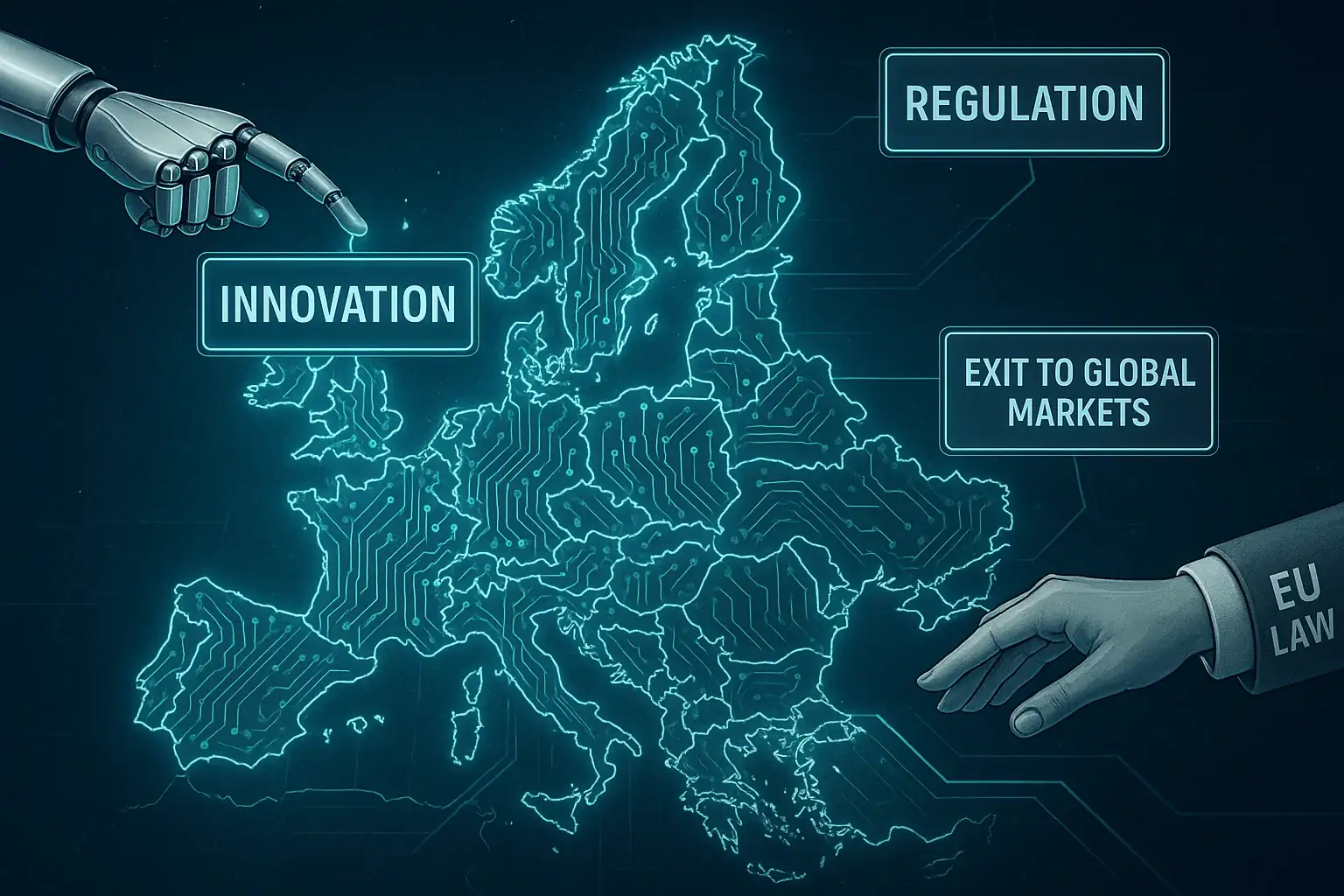Leading European companies in the field of artificial intelligence and digital technologies have called on the EU authorities to suspend the implementation of certain provisions of the new AI Act.
According to these companies, the regulation, designed to create a safe and ethical environment for the use of AI, could seriously damage the innovation potential of the European economy as it stands.
The AI Act was officially passed in June 2025 and has already entered into force. However, representatives of the business community, particularly from the technology sector, argue that the document needs a strategic review. More than 150 companies, including start-ups and large corporations, have signed an open letter calling for a temporary pause in the implementation of certain provisions on artificial intelligence systems that are considered 'high-risk'.
Businesses across Europe are urging EU to delay certain provisions of AI Act, which is due to come into effect in August. Here's more 👇 pic.twitter.com/Cv2fUK8rpD
- TRT World Now (@TRTWorldNow) July 4, 2025
Concern about too tight restrictions
The entrepreneurs' main argument is the fear that overly strict regulation will slow down the development of the European AI sector and push companies towards markets with more flexible rules. The letter points out that the costs of compliance with the new rules could be unsustainable for small and medium-sized companies, not to mention the need to revise entire business models.
"We are not against regulation per se. On the contrary, we support the responsible development of AI. But the approach must be pragmatic and take business realities into account. Otherwise, Europe risks falling behind the United States and China in the global race for artificial intelligence."
Request for dialogue and review of criteria
The companies propose to engage in further dialogue with legislators and regulators. In particular, they call for a reassessment of the 'high risk' classification, according to which many relatively harmless technologies are at risk of coming under strict scrutiny. In addition, they insist on greater clarity in regulatory texts and the creation of support mechanisms, in particular for start-ups and innovation centres.
The need for a trial period - a kind of 'regulatory sandbox', where companies can test their solutions without the risk of immediate penalties - is also emphasised.
The authorities' response
The European Commission has already commented on the appeal. One of its representatives emphasised that the AI Act is the result of long consultations with experts, civil society and industry players. However, Brussels says it is open to discuss possible changes during the implementation phase of the legislation.
"AI regulation is not a static process. We understand companies' concerns and we are ready to discuss specific provisions in practice."
The future of European AI hangs in the balance
The AI Act issue is turning into a test case for the EU's entire digital strategy of the EU. The ability of European regulators to strike a balance between security and innovation will be evident in the coming months. In the meantime, business representatives continue to warn: without flexibility and constructive dialogue, Europe risks missing the opportunity to become a global leader in artificial intelligence.








